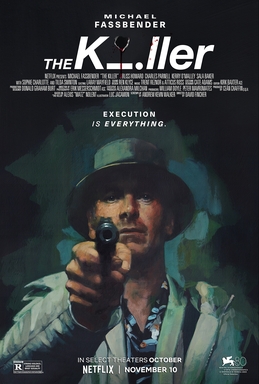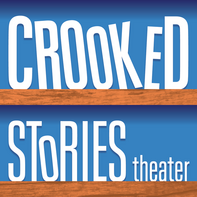THE GAMBLER
(5-page short drama)
by Gary Howell
A man diagnosed with a terminal illness makes a drastic choice.
What would you do if you discovered you only had a couple of weeks to live? The Gambler by Gary Howell asks its main character just that question as 35-year-old Joe Ferguson receives the news that nobody wants to hear:
DR. WILLISTON
The cancer you have is almost
undetectable until it’s too late.
Would your answer change if you lived just minutes from the famed Las Vegas Strip—if you could literally see it from your kitchen window? That’s the entirety of the setup that Howell creates for The Gambler. A lonely, obviously risk-averse man faces a terminal illness in a city known for taking big shots.
How do we know that Joe is risk-averse? Howell deftly sets things up with several simple clues: He describes Joe’s Las Vegas home as “threadbare, sparsely decorated.” Big-spender Joe eats a bowl of cereal for dinner, sorting through a steady parade of bills. And, we soon find out, Joe is sitting on a pile of cash. Add it all up: Joe is a saver, reluctant even to spend his money on his own bills.
That’s the heart of The Gambler, as we watch one piece of information—imminent death—transform someone into a completely new person. The Saver instantly becomes The Gambler.
What’s particularly interesting, though, is how Howell sets up Joe’s mindset for the big moment through a simple exchange with a friend.
JOE
What am I going to do, go to Paris?
I’ll be in hospice before you know it,
and that’ll be fully covered by my
medical insurance.
BUCK
And if you win?
Joe finally stops, faces Buck.
JOE
This is Vegas, Buck. Nobody wins
in Vegas except the house.
Joe knows he’s going to lose. So, why does he want to risk all of his money on one round of blackjack? Is it truly only that he has nothing to lose? Maybe. It’s open for interpretation, but I see the moment as Joe saying to death: “You can’t take everything from me if I take it from me first.” Whatever his motivation, he’s plowing straight ahead.
Soon, he’s sitting at the table.
DEALER
Cards coming out.
The first card comes to Joe face down, then the dealer deals himself a card down.
The next card to Joe comes face up. An eight. Joe frowns, but not nearly as hard as he does when the dealer’s next card comes up — an ace.
BUCK
Shit.
Joe flips his under card over. It’s another eight.
DEALER
Sixteen.
JOE
Welp. Maybe this wasn’t such a
good idea after all.
He drums his fingers on the table. After what seems like an eternity considering it:
It’s the moment Howell has been setting up from page one: the choice. How far will Joe take this? Well, I’m not going to leave you hanging. Yet.
JOE
Hit me.
The dealer takes the next card, flips it over and slides it in front of Joe.
Joe sucks in what seems like all the oxygen in the room. It’s a three.
DEALER
Nineteen.
Joe waves his hand over the cards. Gets up from his chair and as the dealer flips over his hole card, we–
SMASH CUT TO:
EXT. BELLAGIO HOTEL – AFTERNOON
Now I’m going to leave you hanging! But, don’t fret, it could be worse. I’ll let Howell explain: “I had toyed with the idea of a ‘Sopranos’ type ending where you think you know what happened, but aren’t necessarily sure because it would cut to black after Joe steps out of the casino. In giving it more consideration, I thought that in a 5-page script like this one, the reader (and ultimately, the viewer of the film) really wants to have a resolution, and I think the way it ended tied things up, but also allows the reader to imagine what happens with the character afterward.”
Of course, I’m going to make you read the script itself to know what Howell decided. Anything else wouldn’t be as fun. And, in the end, that’s what Howell’s script is: fun. Yes, it’s a drama. Yes, there are heavy themes. But, anybody familiar with Howell’s previous work knows, he writes from the heart, and with a certain, very personal, style. He’s not afraid to write about tragedy or personal heartbreak, but when he does, there’s always another layer. Howell explained. “Being who I am, I’ve always tried to find some sort of positivity and humor in all situations and will try to inject that into my scripts.” The Gambler has that extra layer. It’s well worth the read and definitely worthy of production.
Production Notes: At first glance, the production challenges look daunting for a short: Las Vegas, Bellagio, the fountains…unless you’re looking for an excuse to write off a trip to Vegas, it might seem too much. Howell wants you to look closer, “I think this can actually be filmed using a lot of stock footage of Vegas—it doesn’t have to be big budget. At its heart, this is a character-driven story and can be shot in a minimalistic way.”
Locations: A doctor’s office, a sparse residence, Las Vegas strip, Bellagio exterior and interior.
**The Gambler by Gary Howell received the Writer’s Choice Award in SimplyScripts’ September ’23 One Week Challenge.
Read the Script and talk about it on the Discussion Board
About the Writer: Gary Howell is a native Texan, yet still doesn’t own a cowboy hat. He practiced law for 17 years before finally scratching a life-long itch and started writing short and feature films. He’s had four of his short films produced, one feature optioned and has worked with producer Matthew George (“LBJ”, “Wind River”). Coverfly featured his TV pilot “Bounty” in a recent live virtual table read.
About the Reviewer: Paul Knauer is a produced screenwriter with two features in early development. His main focus is thrillers and slightly absurdist comedy with heart. But, Paul believes becoming a better writer requires pushing personal boundaries, so you’ll notice a thorough mix of genres in his portfolio. Much of his work has universal appeal, evidenced by successful productions in the UK, UAE, and US–and options in Australia, Russia, India, Canada, and Thailand. A recent feature of his was named a 2022 Nicholl Fellowship Quarterfinalist.
Find more scripts available for production
*This screenplay may not be used or reproduced for any purpose including educational purposes without the expressed written permission of the author.

![]() The Killer – Post October 4, 2022 Final draft script by Andrew Kevin Walker (based upon the graphic novel by MATZ) – hosted by: Netflix – in pdf format
The Killer – Post October 4, 2022 Final draft script by Andrew Kevin Walker (based upon the graphic novel by MATZ) – hosted by: Netflix – in pdf format
![]() Nyad – Undated, unspecified draft script by Julia Cox (Based on the book “Find a Way” by Diana Nyad) – hosted by: Netflix – in pdf format
Nyad – Undated, unspecified draft script by Julia Cox (Based on the book “Find a Way” by Diana Nyad) – hosted by: Netflix – in pdf format











